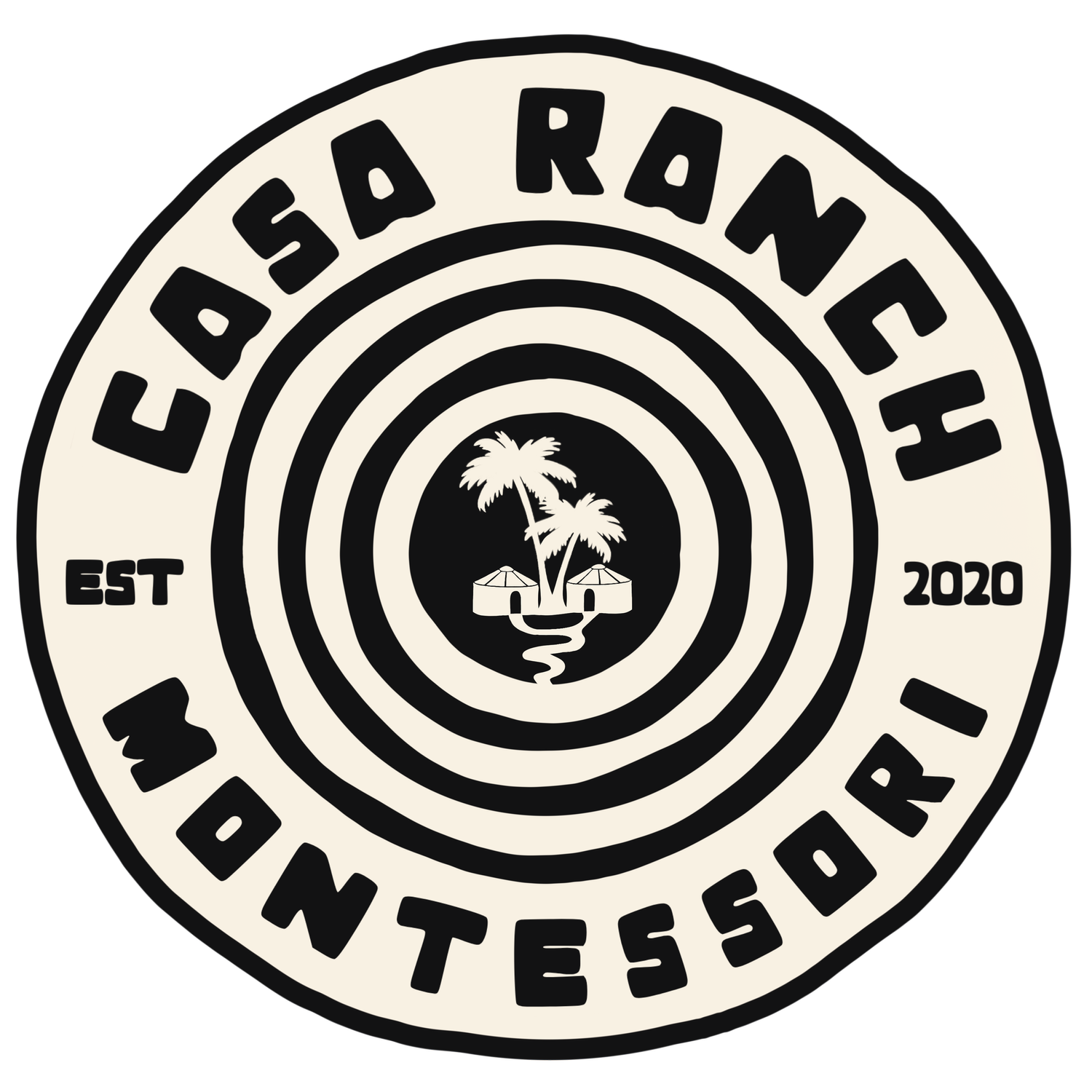Programs
Toddler & Early Childhood
A Family-Centered Learning Experience (Ages 2-5)
Our Montessori 2–5 program is thoughtfully designed for families who wish to be active participants in their child’s educational journey, rather than simply dropping them off. We believe that parents and caregivers are essential partners in early childhood development, and we aim to build a strong bridge between home and school. Through workshops, ongoing guidance, and community collaboration, we help families gain a deep understanding of the Montessori philosophy so it can be meaningfully applied at home as well.
Rooted in the principles of Dr. Maria Montessori, our program focuses on the most critical phase of brain development—the period she called the Absorbent Mind. During this time, children naturally absorb knowledge from their environment with ease and enthusiasm. Our carefully prepared indoor and outdoor classrooms are designed to support this unique developmental stage, fostering independence, curiosity, and a love of learning.
In our mixed-age setting, children aged 2 to 5 learn side-by-side, allowing younger students to be inspired by older peers, and older children to develop leadership and empathy. This dynamic mirrors the natural rhythms of family and community life, promoting collaboration and social development.
The Montessori materials, designed with purpose and intention, support a Spiral Curriculum that revisits key concepts over a three-year cycle. Children engage in hands-on, self-directed learning that cultivates concentration, coordination, order, and self-discipline. Lessons are introduced individually by trained Montessori Guides and then practiced at each child’s own pace with the support of self-correcting materials.
Our outdoor learning spaces offer daily opportunities to connect with nature, enhancing gross motor development, mindfulness, creativity, and environmental awareness. By nurturing both cognitive and emotional growth in a holistic setting, we empower children to become confident, capable, and compassionate learners.
At Casa Ranch, we see education as a shared journey—and we invite families to walk that path with us.
Lower Elementary
(The Reasoning Mind— Ages 6-9)
At this plane of development, children explore the world through socialization, imagination, and can demonstrate an ability to think more abstractly. Montessori education, at the lower elementary level, is designed to spark creativity, curiosity, and greater independence in a multi-age environment that caters to children 6-9 years of age. Our nature-based, Montessori prepared environment and trained guides support students by providing them with engaging, spontaneous, purposeful learning opportunities as they strive for intellectual independence. Similar to the Early Childhood (EC) program, children progress at their own pace and rhythm, according to their individual capabilities. Students will come into the elementary environment and find familiar materials from their previous EC class, where they will use and learn from them in new ways suited to their expanding minds.
The elementary curriculum begins and flows from the Great Lessons in Cosmic Education: how the universe was formed, how life on earth was formed, evolution of man, and the development of language and math.
Upper Elementary
(The Transition to Abstract Reasoning— Ages 9-10)
Our Upper Elementary program builds on the content of Cosmic Education in more complex ways; expanding students’ abstract plane of the mind in the height of their intellectual development. Students in Upper Elementary seek to understand the “hows” and “whys” behind things they study, but also to understand different perspectives, through research, discussion, and large-scale projects. Guides help students lay a foundation for inquiry-based learning, where curiosity and a desire to question everything brings comfort to students’ confidence and ability in finding out information independently. The role of an Upper Elementary Guide is to present key information and material in an area of study to lead students along the path of exploration and discovery. Our interdisciplinary approach, allows for active learning through research, collaboration, critical thinking, cooperation, and making connections to history, students’ place in society, and the power of their knowledge and voice to solve real-world problems.
Middle School
(The Transformation to Independence — Ages 11-14)
At this stage, students are going through significant cognitive, social, and emotional development. They're beginning to form a more complex understanding of the world and their place in it, and they seek greater independence, both academically and personally.
The focus shifts to deepening abstract thinking, critical analysis, and problem-solving skills, while also fostering a sense of responsibility and social awareness. It's a time for exploring larger concepts, working on long-term projects, and developing personal values—integrating the knowledge gained in earlier years into a more self-directed, purposeful approach to learning.
Casa Ranch Montessori’s middle school program is a unique blend of academic rigor and real-world application, designed to nurture independence, critical thinking, and social responsibility.
Outdoor Learning
Students spend significant time outdoors, engaging in permaculture projects and exploring nature, fostering environmental stewardship and hands-on learning.
Montessori Model UN
Through the Montessori Model UN, students develop global awareness, leadership, and diplomacy by simulating real-world international challenges.
Practical Life Skills
The program emphasizes practical life skills like cooking, gardening, and managing finances, preparing students for personal and community responsibility.
Critical Thinking & Collaboration
Students engage in deep, critical thinking and collaborative learning, enhancing problem-solving and communication skills, essential for success beyond school.
Peace Education & Mindfulness
The curriculum integrates peace education and mindfulness, helping students develop emotional intelligence, conflict resolution skills, and a balanced approach to stress.
This holistic approach ensures students graduate as well-rounded, compassionate, and confident individuals, ready for the next chapter in their educational journey.




